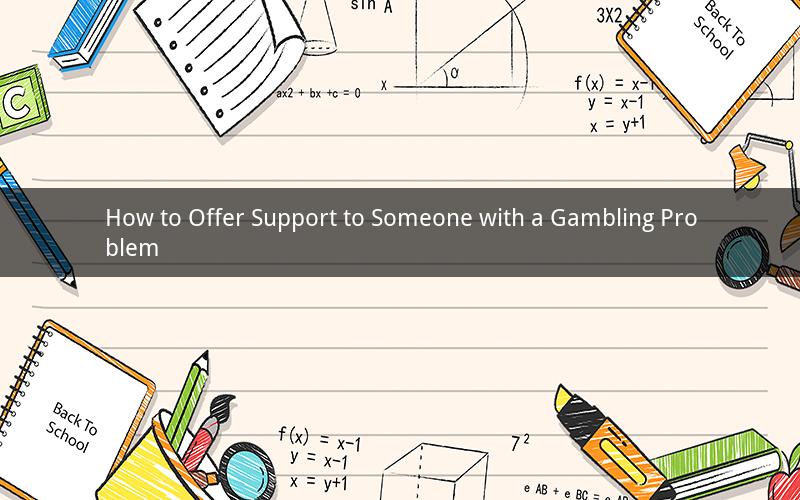
Introduction:
Gambling addiction is a serious issue that affects millions of individuals worldwide. If you know someone who is struggling with a gambling problem, it's important to understand how to offer support. This article provides practical advice on how to help someone with a gambling problem, along with answers to frequently asked questions.
1. Understanding the Problem:
To help someone with a gambling problem, it's crucial to first understand the nature of the addiction. Here are some key points to consider:
What is gambling addiction?
Gambling addiction is a chronic, progressive disorder characterized by an inability to control the urge to gamble. It is often accompanied by negative consequences, such as financial, emotional, and social problems.
What are the signs of a gambling problem?
Signs of a gambling problem may include hiding gambling activities, lying about gambling, neglecting responsibilities, borrowing money, and experiencing mood swings or depression.
2. Communicating with the Person:
Once you've identified that someone has a gambling problem, it's important to approach the situation with sensitivity and care. Here are some tips for effective communication:
How to approach the topic:
When discussing the issue, choose a private, quiet setting where the person feels safe and comfortable. Avoid confrontational language and focus on expressing your concern rather than judgment.
What to say:
Use "I" statements to express your feelings without placing blame. For example, "I'm worried about you" instead of "You're a problem gambler."
3. Encouraging Professional Help:
Seeking professional help is an essential step in overcoming a gambling addiction. Here's how you can encourage the person to seek treatment:
How to suggest professional help:
Gently suggest that the person consider seeking help from a therapist, counselor, or support group. Emphasize the importance of professional guidance and the potential benefits of treatment.
How to support the person during treatment:
Encourage the person to attend therapy sessions and support groups regularly. Offer to accompany them to appointments or meetings if they feel comfortable.
4. Providing Emotional Support:
Supporting someone with a gambling problem can be challenging, but it's important to maintain a strong emotional connection. Here are some ways to provide emotional support:
How to offer emotional support:
Be patient and understanding. Acknowledge the person's struggles and celebrate their progress, no matter how small. Offer a listening ear and a shoulder to lean on.
How to deal with your own emotions:
Take care of your own emotional well-being while supporting the person with a gambling problem. Seek support from friends, family, or a therapist if needed.
5. Encouraging Healthy Coping Mechanisms:
Helping someone develop healthy coping mechanisms can aid in their recovery process. Here are some suggestions:
How to encourage healthy coping mechanisms:
Encourage the person to engage in activities that provide a sense of fulfillment and distraction from gambling. This may include exercise, hobbies, or spending time with loved ones.
How to support the person in developing new habits:
Offer to join them in new activities or help them find support groups focused on healthy coping strategies.
Frequently Asked Questions:
Q: How can I help someone who is secretive about their gambling habits?
A: Be patient and understanding. Encourage open communication by expressing your concern without judgment. Offer support and reassurance that you are there to help.
Q: What if the person refuses to seek professional help?
A: Continue to express your support and concern. Offer to research treatment options together or encourage them to speak with a trusted friend or family member who may be more persuasive.
Q: How can I help someone who is in financial trouble due to gambling?
A: Assist the person in seeking financial counseling or support from a credit counselor. Offer to help them create a budget and develop strategies to manage their debt.
Q: Can I confront the person about their gambling problem?
A: Confrontation may worsen the situation. Instead, approach the topic with empathy and focus on expressing your concern without placing blame.
Q: How long does it take to recover from a gambling addiction?
A: Recovery from a gambling addiction is a long-term process. The duration varies for each individual, but with professional help and ongoing support, many individuals can overcome their addiction.
Conclusion:
Helping someone with a gambling problem requires patience, understanding, and support. By following these guidelines and remaining compassionate, you can make a significant difference in the life of someone struggling with this addiction. Remember, recovery is possible, and you are an essential part of their journey.